View all Standards for Alberta, Canada
6 recognize when to use specific breathing techniques
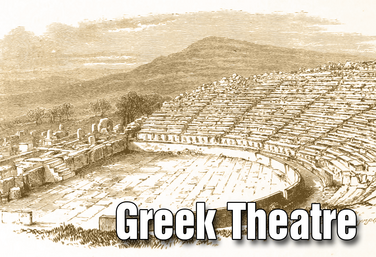
UNIT
Part of the Drama One Curriculum
Ancient Greek Theatre
by Karen Loftus
This unit on Ancient Greek theatre focuses on the function of the chorus, the choral ode, and the details of the theatre space. It touches on plays and playwrights of the era, culminating in a final project of a modern version of Medea that includes a choral ode.
Read More
about Ancient Greek Theatre
Read Less
about Ancient Greek Theatre
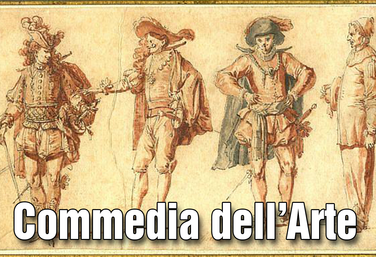
UNIT
Part of the Drama One Curriculum
Commedia Dell'Arte
by Karen Loftus
Students will discover, analyze, and explore the history, characters, and style of commedia dell’arte.
Commedia dell’arte is a theatre history unit mixed with improvisation, physicalization, and exploring specific characters. In this unit, we’re going to focus on three main aspects:
1. Causes and Effects of Commedia (History)
2. Stock Characters
3. Commedia Performance Practices
Read More
about Commedia Dell'Arte
Read Less
about Commedia Dell'Arte
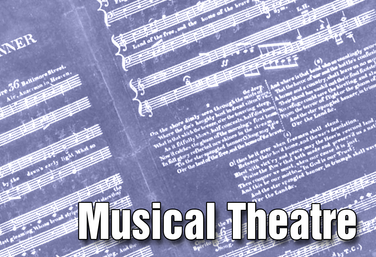
UNIT
Musical Theatre
by Anna Porter
Musical Theatre has two components that separate it from straight plays: song and dance. This unit gives students the opportunity to try out both. In musical theatre, music signifies heightened emotion. We can’t express ourselves with just words, we need music (and through extension, song and dance) to take it further.
This unit includes three lesson plans:
1. Acting the Song - “Musical Tactics”
2. Acting the Song - “Textual Analysis”
3. Introduction to Dance
A solo performance assignment is also included, and the unit includes assessment tools - rubrics, reflections, and self-evaluations.
Read More
about Musical Theatre
Read Less
about Musical Theatre
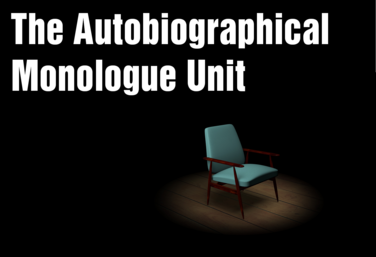
UNIT
The Autobiographical Monologue
by Gai Jones
All students have something to say and a story to tell. They can relate to their personal stories better than anyone else. All students have a lot of material which can be used as part of an original monologue.
In this unit, students will write an autobiographical monologue based on their personal expertise, memories, distinct point of view, sense of truth, and life experiences.
Through the process, students will be encouraged to explore past stories, objects, and images and other personal material.
Read More
about The Autobiographical Monologue
Read Less
about The Autobiographical Monologue
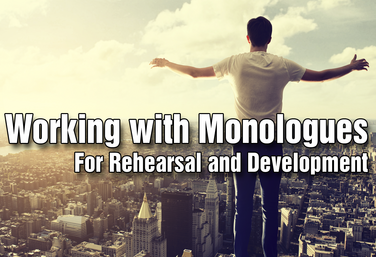
PD COURSE
Working With Monologues For Rehearsal And Development
by Gai Jones
In "Working With Monologues For Rehearsal And Development" you will develop ten sessions of study on monologues. The study contains the definition and history of the monologue; monologue vocabulary; analysis of a practice monologue, staging a short monologue; working with musical theatre lyrics as a monologue; writing short autobiographical monologues.
At the end of this course, you will have a curriculum which can be used as introduction to monologue work.
Read More
about Working With Monologues For Rehearsal And Development
Read Less
about Working With Monologues For Rehearsal And Development
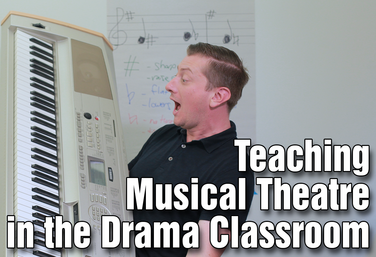
PD COURSE
Teaching Musical Theatre in the Drama Classroom
by Colin Oliver
Colin Oliver leads this introduction to teaching Musical Theatre in the Drama Classroom.
In this course, you will learn how to build musical theatre into your dramatic courses of study. “Why might you want to do that? Singing is scary! You want me to teach my students how to do it? I don’t even know how to do it.” This course approaches musical theatre preparation performance much as we would approach preparing a monologue in drama. If you use script analysis in monologue preparation in your class, you can teach musical theatre.
By the end of this course, you’ll have a great, full-body physical warm-up, a student-driven research assignment, character development exercises, a little bit of musical theory, and a performance assignment complete with assessment.
So, join us for teaching Musical Theatre in the Drama Classroom. It’s as easy as Do-Re-Mi!
Read More
about Teaching Musical Theatre in the Drama Classroom
Read Less
about Teaching Musical Theatre in the Drama Classroom
View all Standards for Alberta, Canada Standards Master List